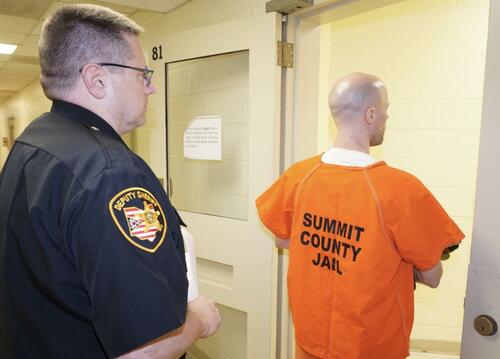
Jails Have Become „Fentanyl Free-For-Alls” Thanks To Dem Bill That Banned Strip Searches
Washington’s soft-touch jail policies have turned facilities into fentanyl hotspots, thanks to rules that make it harder to properly search inmates, according to Jason Rantz at 770 KTTH.
Rantz writes this week that Thurston County Sheriff Derek Sanders recently sounded the alarm after two overdoses at his jail tied to drugs smuggled in body fat.
“Once the drugs made their way in, a different inmate consumed the drugs and overdosed,” Sanders said. “Life-saving efforts from jail staff prevented the overdose from being fatal.”
Days later, it happened again—this time, fentanyl was found under an inmate’s breast.
“A Corrections Sergeant observed an inmate acting oddly and immediately called for medical,” Sanders reported. “CPR was performed for 10 minutes… Narcan deployment… The inmate will be booked on new felony charges.”
In his piece, Rantz writes that that It shouldn’t be this easy for an obese inmate to sneak drugs into jail—but thanks to misguided policies, it is.

This stems from 2SSB 5695, a 2022 Democratic bill—ironically also backed by Republicans—that banned “dehumanizing” strip searches and mandated body scanners. But the Department of Health, tasked with setting scanner rules, imposed such weak radiation limits under WAC 246-230-040 that scanners can’t detect drugs hidden in body fat.
“The new rules under WAC 246-230-040, implemented in January 2025, force scanners to use laughably low radiation levels to appease activists screaming about ‘ALARA’ (As Low As Reasonably Achievable) principles,” wrote Sheriff Sanders.
Lawmakers say the new rules protect inmates from radiation—but that claim doesn’t hold up.
The previous scan dose—2.00 µSv—was already safer than a dental X-ray. Sheriff Sanders pointed out it would take 1,000 scans to hit the annual limit. “Strip searches cannot be conducted on every inmate who is booked… but its [the scanner’s] effectiveness isn’t nearly what it was post-law change,” he wrote.
Strip searches were unpleasant but worked. Lawmakers scrapped them without ensuring the scanners could actually do the job. And the same Department of Health that insisted COVID vaccines stopped transmission isn’t exactly a reliable authority on radiation safety.
Tyler Durden
Wed, 03/26/2025 – 22:10













